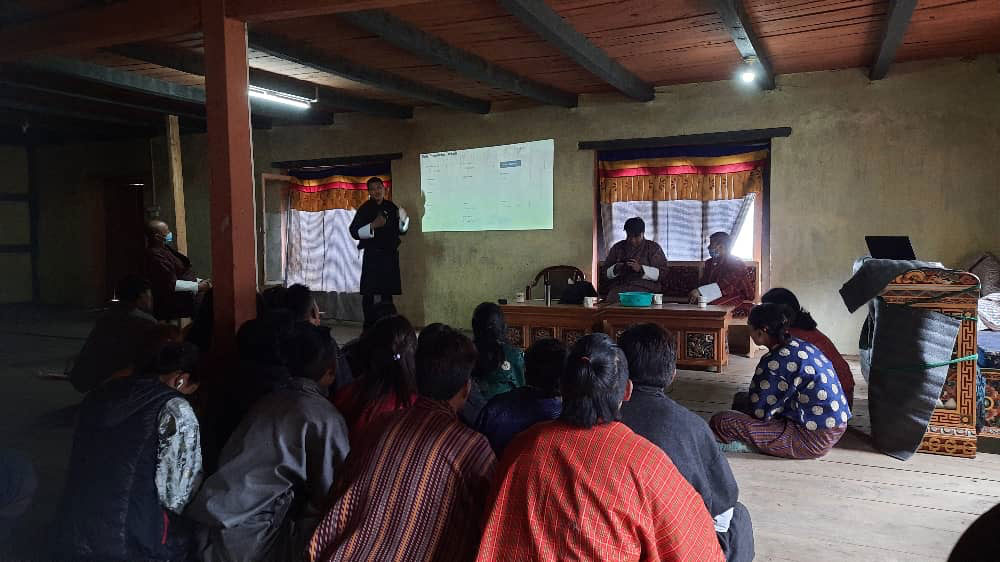Choki Wangmo | Tsirang
As part of the Journalists’ Association of Bhutan’s (JAB) effort to strengthen rural populations’ involvement in healthy discussions on social issues affecting their communities, about 120 people from six dzongkhags were trained on the use of social media platforms.
Two senior journalists from Ox Media conducted the month-long training, which was divided into citizen journalism and social media.
One of the facilitators, Tshering Dorji, said that the citizen journalism workshop focused on how people can use various social media platforms to report news and issues and become active citizen journalists by using social media platforms. “This is important since a lot of mainstream news outlets cannot reach these areas and are least covered.”
The second component of the workshop, he said, introduced the participants on the different social media platforms and how to use each of these platforms to share news. “We also delved into some aspects of cyber security and digital financial literacy.”
The workshop, which recently ended in Lingzhi, targeted semi-literate and school dropouts living in remote communities.
Tshering Dorji said that JAB would create a website to document the issues affecting the communities and also create a WeChat group among participants and journalists.
Another facilitator, Nidup Gyeltshen said that although it was exhausting to cover many dzongkhags in a short period of time, the job was rewarding. “Our rural folks are eager to voice their issues and engage with journalists to highlight key issues affecting their communities.”
He cited the example of how participants in Lingzhi highlighted on issues such as the human wildlife conflict, stray dog nuisance, overharvesting of cordyceps, and yak disease outbreak.
At the workshop in Tsirang conducted on August 28, participants from Mendrelgang reported about the lack of reliable water supply for paddy cultivation in the dzongkhag despite being the organic capital of the country.
A participant from Pemashong chiwog, Ugyen Wangmo, said that the workshop had helped them understand social media policies.
She said that she used to post and share unverified information on Facebook and WeChat but she now knows the rules. “I should first crosscheck the information.”
She said that she also did not know that people could raise issues on social media. “Instead of reporting to the local government, we would be able to come up with solutions by sharing on social media. I am planning to use the platform meaningfully.”
Another user, Nima Dorji, said that WeChat was popular among people in his communities including the elderly and the illiterate.
He said unverified information and fake news were shared in the group chats. “With the training, I hope such trends would decrease in the community.”
The facilitators said that while rural communities had a fair understanding and awareness on social issues and the use of social media, there is a general lack of empowerment to use social media to highlight their issues.
“One area where more awareness is required is to generate useful and meaningful content on social media platforms,” Tshering Dorji said.
He said that most users on social media use the platform to consume news and entertainment, which could be used for engagement in healthy discourse but with contents based on facts.
JAB’s programme officer, Sangay Choki, said that digital literacy is poor in Bhutan despite the fact that a sizeable amount of the population is online. “As a part of the training, JAB has facilitated the formation of community-based social media platforms to build two-way communication between the media and community members.”
She said that the workshop trained people to access online apps and tools, particularly G2C apps such as educational services, security clearance, audit clearance, business services, among others.
The social media workshop is funded by UNDEF and citizen journalism training is funded by Helvetas.
Edited by Tashi Dema


